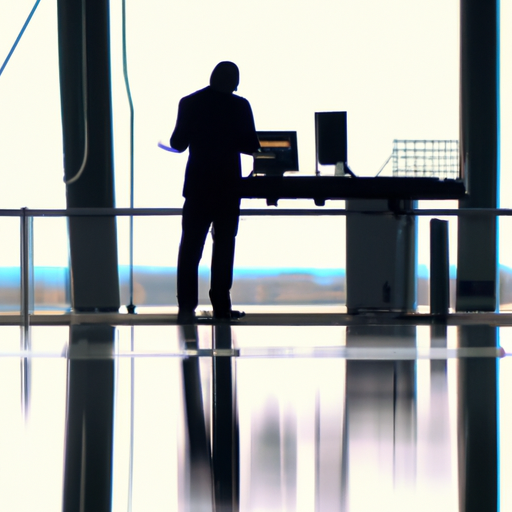
The Impact of Technology on Corporate Travel Efficiency
The Impact of Technology on Corporate Travel Efficiency
In today’s fast-paced business world, efficiency is key. Companies are constantly looking for ways to streamline their operations and maximize productivity. One area where technology has had a significant impact is corporate travel. Gone are the days of cumbersome paper itineraries and long waits at the airport. With the advent of new technologies, corporate travel has become more efficient than ever before.
One of the most significant advancements in corporate travel technology is the rise of online booking platforms. These platforms allow employees to book flights, hotels, and rental cars all in one place, saving time and eliminating the need for multiple phone calls or emails. With just a few clicks, employees can compare prices, view availability, and make reservations, all from the comfort of their own desks. This not only saves time but also ensures that employees are getting the best possible rates for their travel needs.
Another way technology has improved corporate travel efficiency is through the use of mobile apps. Many travel companies now offer mobile apps that allow employees to access their travel itineraries, receive real-time updates on flight delays or cancellations, and even check in for their flights right from their smartphones. This eliminates the need for printed boarding passes and reduces the risk of lost or misplaced documents. With just a few taps on their screens, employees can have all the information they need at their fingertips, making their travel experience smoother and more efficient.
In addition to online booking platforms and mobile apps, technology has also revolutionized the way companies manage their travel expenses. Gone are the days of manually tracking receipts and filling out expense reports. With the rise of expense management software, employees can now easily capture receipts, categorize expenses, and submit reports all from their smartphones or laptops. This not only saves time but also reduces the risk of errors or lost receipts. Companies can also use this software to analyze travel expenses and identify areas where costs can be reduced, further improving efficiency.
Furthermore, technology has also made communication during corporate travel more efficient. With the rise of video conferencing and collaboration tools, employees no longer need to physically travel to attend meetings or conferences. Instead, they can participate remotely, saving time and reducing travel expenses. These tools also allow for real-time collaboration, making it easier for teams to work together even when they are in different locations. This not only improves efficiency but also reduces the carbon footprint associated with corporate travel.
In conclusion, technology has had a profound impact on corporate travel efficiency. From online booking platforms to mobile apps and expense management software, companies now have a wide range of tools at their disposal to streamline their travel operations. These advancements not only save time and reduce costs but also improve the overall travel experience for employees. As technology continues to evolve, it is likely that corporate travel will become even more efficient in the future. By embracing these technological advancements, companies can stay ahead of the curve and ensure that their travel operations are as efficient as possible.
Sustainable Practices in Corporate Travel: A Path to a Greener Future

The Evolution of Corporate Travel: Embracing the Future
Sustainable Practices in Corporate Travel: A Path to a Greener Future
In recent years, there has been a growing awareness of the impact that corporate travel has on the environment. As companies strive to become more socially responsible, they are increasingly looking for ways to reduce their carbon footprint and embrace sustainable practices in their travel policies. This shift towards greener travel not only benefits the environment but also presents opportunities for cost savings and improved employee well-being.
One of the key areas where companies can make a significant impact is in transportation. Traditional modes of travel, such as air and road, are major contributors to greenhouse gas emissions. However, with advancements in technology and the availability of alternative options, there are now more sustainable choices available.
One such option is the use of video conferencing and virtual meetings. With the rise of high-speed internet and video communication platforms, companies can now conduct meetings and conferences without the need for travel. Not only does this reduce carbon emissions, but it also saves time and money. Employees no longer have to endure long hours of travel, and companies can allocate their resources more efficiently.
When travel is necessary, companies can opt for greener transportation options. Electric vehicles are becoming increasingly popular, and many companies are investing in their own fleet of electric cars or partnering with ride-sharing services that offer electric vehicles. Additionally, public transportation and trains are more sustainable alternatives to air travel for shorter distances. By encouraging employees to choose these options, companies can significantly reduce their carbon footprint.
Another aspect of sustainable corporate travel is accommodation. Traditional hotels consume large amounts of energy and water, contributing to environmental degradation. However, there has been a rise in eco-friendly hotels that prioritize sustainability. These hotels use renewable energy sources, implement water-saving measures, and promote recycling and waste reduction. By choosing to stay in these establishments, companies can support sustainable practices and contribute to a greener future.
In addition to transportation and accommodation, companies can also implement sustainable practices in other aspects of corporate travel. For example, encouraging employees to pack light and use reusable water bottles and coffee cups can reduce waste. Providing digital itineraries and documents instead of printed materials can also help minimize paper usage. These small changes, when adopted by many companies, can have a significant positive impact on the environment.
Embracing sustainable practices in corporate travel not only benefits the environment but also presents opportunities for cost savings and improved employee well-being. By reducing the need for travel through video conferencing and virtual meetings, companies can save on transportation and accommodation expenses. Additionally, employees who no longer have to endure long hours of travel can experience improved work-life balance and reduced stress.
As the world becomes more conscious of the need to protect the environment, it is essential for companies to adapt and embrace sustainable practices in their travel policies. By making greener choices in transportation, accommodation, and other aspects of corporate travel, companies can contribute to a greener future while reaping the benefits of cost savings and improved employee well-being. The evolution of corporate travel is underway, and it is up to companies to embrace the future and make a positive impact on the environment.
The Rise of Bleisure Travel: Combining Business and Leisure for a Well-rounded Experience
The world of corporate travel has undergone a significant transformation in recent years. Gone are the days when business trips were solely focused on work, with little time for relaxation or exploration. Today, a new trend has emerged – bleisure travel. This innovative concept combines business and leisure, allowing professionals to make the most of their time away from the office.
Bleisure travel has gained popularity for several reasons. Firstly, it offers a well-rounded experience for business travelers. Instead of spending their entire trip confined to conference rooms and hotel rooms, professionals now have the opportunity to explore new destinations and immerse themselves in different cultures. This not only enhances their personal growth but also allows them to return to work feeling refreshed and inspired.
Another reason for the rise of bleisure travel is the changing mindset of employers. Many companies now recognize the importance of work-life balance and understand that happy and fulfilled employees are more productive. By encouraging their staff to take advantage of bleisure opportunities, employers are not only fostering a positive work environment but also attracting and retaining top talent.
The rise of bleisure travel has also been facilitated by advancements in technology. With the advent of smartphones and other mobile devices, professionals can now stay connected and work remotely from anywhere in the world. This means that they can extend their business trips and take advantage of the leisure opportunities available in their destination. Whether it’s exploring historical landmarks, trying local cuisine, or simply relaxing on a beach, bleisure travelers can make the most of their time away from the office.
In addition to the benefits for individuals, bleisure travel also has positive implications for the travel industry as a whole. Hotels, airlines, and other travel providers have recognized the potential of this growing market and are adapting their offerings accordingly. Many hotels now offer amenities and services specifically tailored to bleisure travelers, such as flexible check-in and check-out times, complimentary Wi-Fi, and access to fitness facilities. Airlines are also introducing new routes and flight options to cater to the needs of bleisure travelers, making it easier than ever to combine business and leisure.
While bleisure travel offers numerous advantages, it is important for professionals to strike a balance between work and leisure. It is essential to prioritize work commitments and ensure that business objectives are met before indulging in leisure activities. Planning ahead and setting clear boundaries can help prevent any potential conflicts and ensure a successful bleisure experience.
In conclusion, the rise of bleisure travel is revolutionizing the world of corporate travel. By combining business and leisure, professionals can enjoy a well-rounded experience that enhances personal growth and productivity. With the support of employers and advancements in technology, bleisure travel is set to become the new norm. So, next time you embark on a business trip, why not embrace the future and make it a bleisure adventure?


